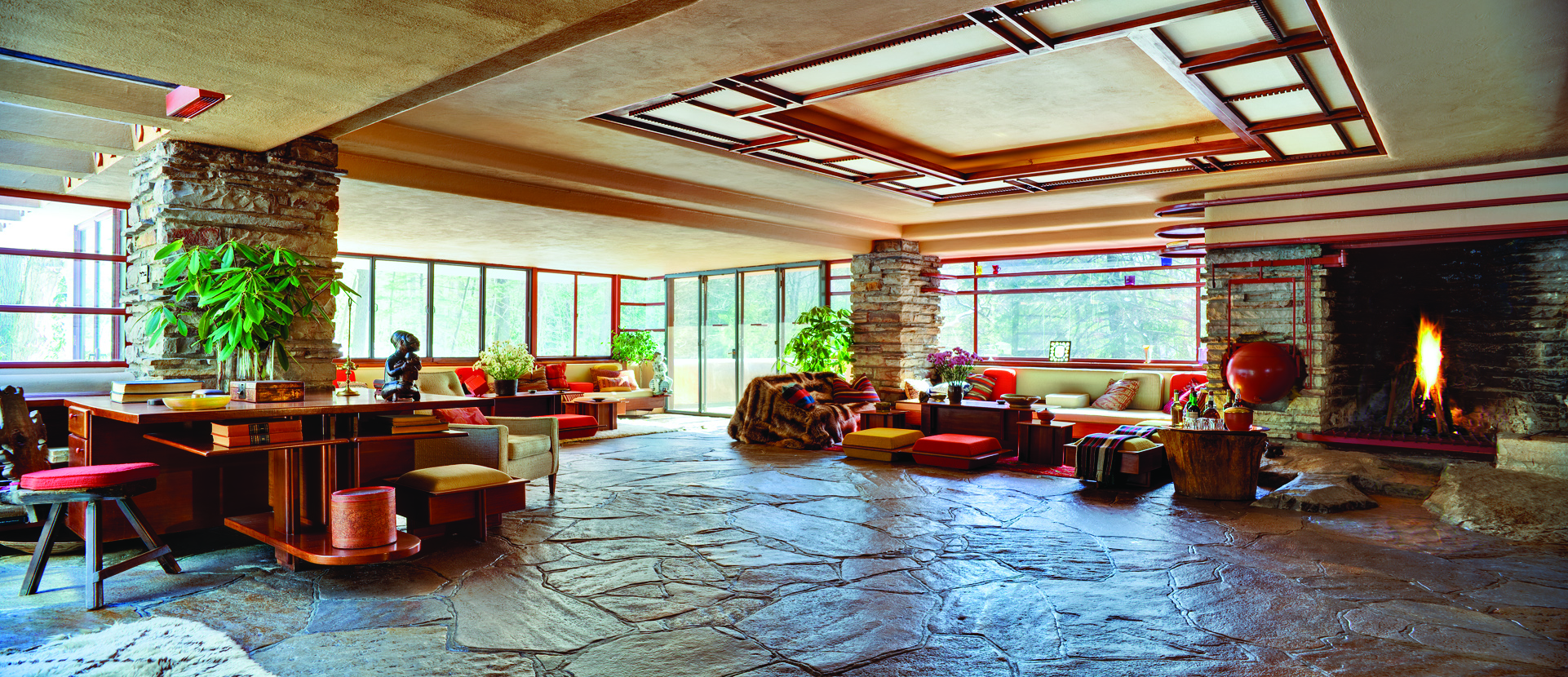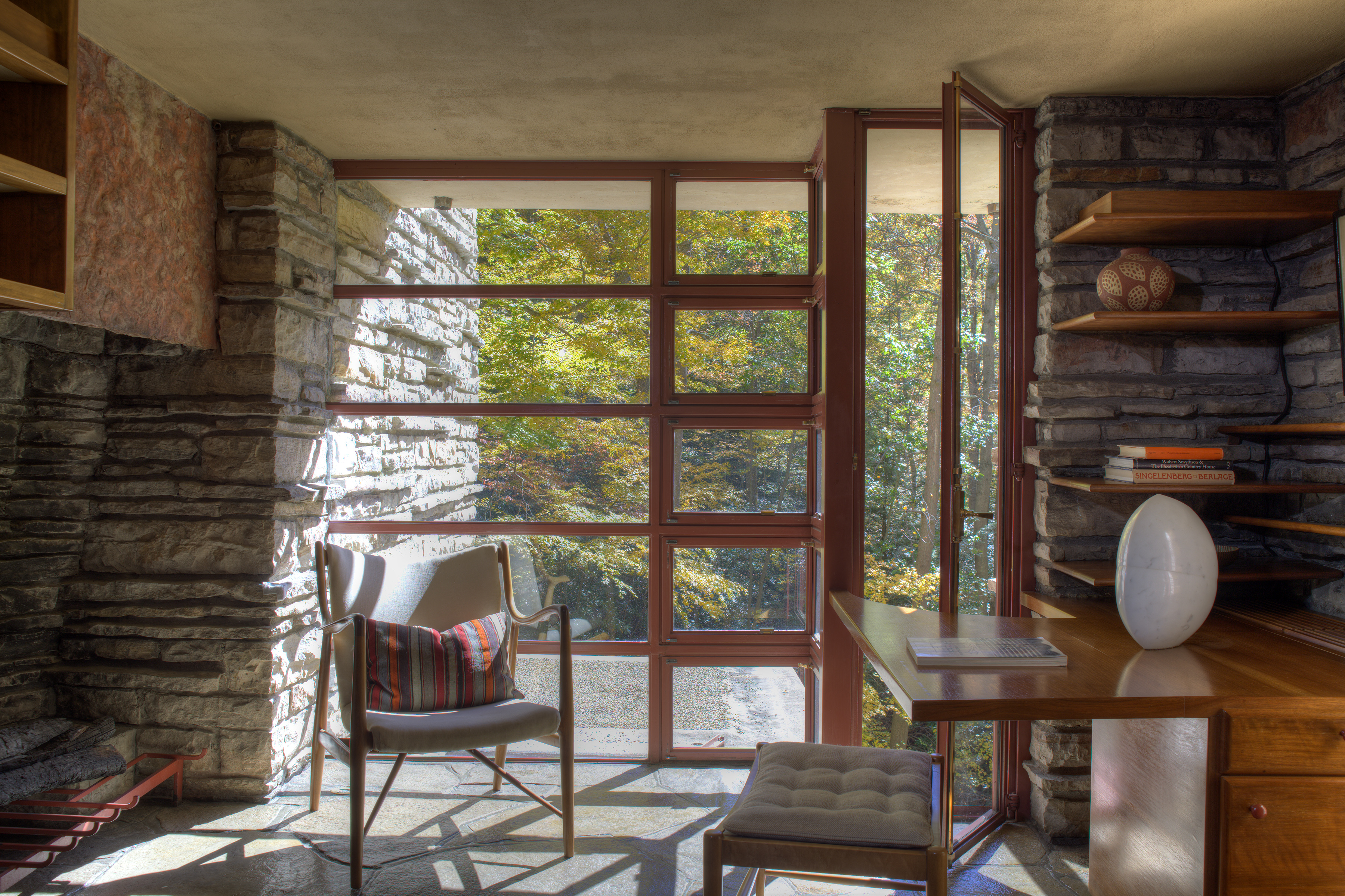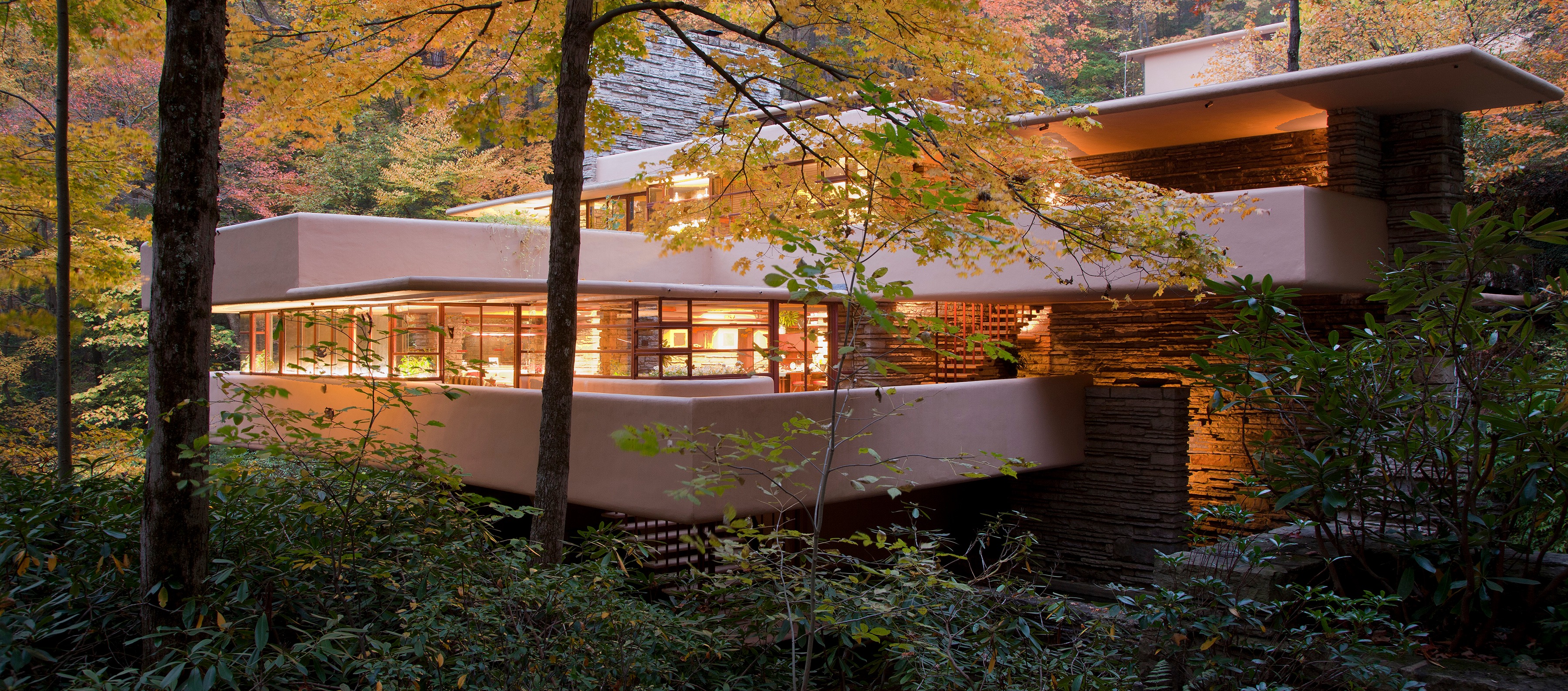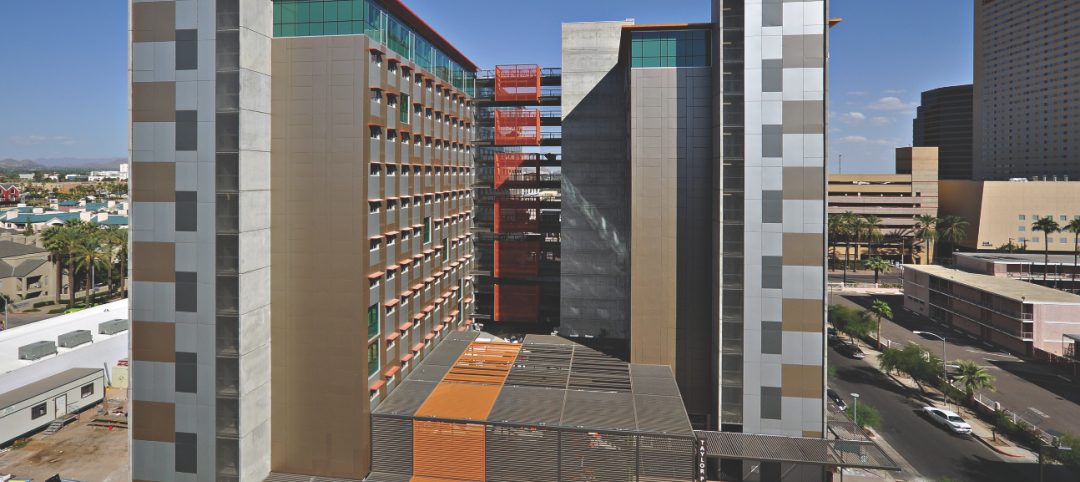In September 2019, the Western Pennsylvania Conservancy, owners of Frank Lloyd Wright’s Fallingwater, sought to complete restoration work on the window and door glass of the architect’s celebrated masterpiece. As it has done for many years, the organization turned to two trusted sources for their products and expertise: Vitro Architectural Glass (formerly PPG Glass) and Dlubak Specialty Glass Corp., a member of the Vitro Certified™ Network.
One of Wright’s primary goals in designing Fallingwater was to reduce, as much as possible, the visual barrier between the inside of the house and its iconic location above the falls of Bear Run in Pennsylvania’s Laurel Highlands. This guided Wright’s 1934 decision to specify Waterwhite glass, a low-iron glass that PPG Glass (now Vitro Glass) had recently introduced. Because Waterwhite glass is no longer made, the staff of Fallingwater today relies on its more sophisticated successor, Starphire Ultra-Clear® glass, to preserve its fabled exterior views. Manufactured by Vitro Glass using a proprietary low-iron formulation that continues to be refined, Starphire® glass has been chosen for all of Fallingwater’s window glass replacement projects over the past few decades.
 One of Wright’s primary goals in designing Fallingwater was to reduce, as much as possible, the visual barrier between the inside of the house and its iconic location.
One of Wright’s primary goals in designing Fallingwater was to reduce, as much as possible, the visual barrier between the inside of the house and its iconic location.
Photography courtesy of Western Pennsylvania Conservancy
Fallingwater is the only major work by Frank Lloyd Wright to be brought into the public domain with so much of its original furnishings and artwork intact. While regular maintenance is performed to keep it in prime condition, its caretakers work diligently to ensure that all efforts to preserve the property are made with his legacy in mind.
Window and door restoration is a continuous task, says Scott W. Perkins, director of preservation and collections for Fallingwater. “The window glass is replaced on a somewhat routine basis and usually in conjunction with steel conservation,” he explained. 
Although the last major round of window preservation took place in 2015, the Conservancy determined in September 2019 that 69 of Fallingwater’s window and door sashes needed to be repaired, including 16 windows that required complete replacement of the glass.
To enhance the strength and performance of the refurbished windows while preserving their historic integrity, the Conservancy specified Starphire® glass with a SentryGlas™ interlayer by Kuraray. In addition to offering five times the strength of ordinary laminating materials and 100 times the stiffness, the interlayer helps protect furnishings by limiting their exposure to ultraviolet (UV) light.
While the interlayer gives strength to Fallingwater’s window glass, Starphire® glass preserves its beauty. With visible light transmittance (VLT) of 91% in a standard ¼-inch (6-millimeter) thickness, Starphire® glass delivers the virtually unobstructed outdoor views Wright envisioned for Fallingwater when he first specified Waterwhite low-iron glass in 1934. “The clarity of the glass allows for it to appear invisible, a feature Wright admired,” Perkins explained.
Nearly 25 years after Starphire® glass was introduced, it remains the clearest, most transparent commercial float glass available to architects today – containing 87% less green than ordinary clear glass and offering pure, undistorted transmitted color with absolutely no grays or yellows.
To learn more and request samples, visit www.vitroglazings.com/starphire.
Related Stories
| Sep 13, 2010
Committed to the Core
How a forward-looking city government, a growth-minded university, a developer with vision, and a determined Building Team are breathing life into downtown Phoenix.
| Aug 11, 2010
New data shows low construction prices may soon be coming to an end
New federal data released recently shows sharp increases in the prices of key construction materials like diesel, copper and brass mill shapes likely foreshadow future increases in construction costs, the Associated General Contractors of America said. The new November producer price index (PPI) report from the Bureau of Labor Statistics provide the strongest indication yet that construction prices are heading up, the association noted.
| Aug 11, 2010
Using physical mockups to identify curtain wall design flaws
Part two of a five-part series on diagnosing and avoiding cladding, glazing, and roofing failures from building forensics expert IBA Consultants.
| Aug 11, 2010
Best AEC Firms of 2011/12
Later this year, we will launch Best AEC Firms 2012. We’re looking for firms that create truly positive workplaces for their AEC professionals and support staff. Keep an eye on this page for entry information. +
| Aug 11, 2010
AAMA leads development of BIM standard for fenestration products
The American Architectural Manufacturers Association’s newly formed BIM Task Group met during the AAMA National Fall Conference to discuss the need for an BIM standard for nonresidential fenestration products.
| Aug 11, 2010
NoricF4 custom metal ICF frames receive fire ratings, comply with antiterrorism standards for buildings
Reward Wall Systems' NoricF4 Custom Metal ICF Frames have received fire ratings of 1.5 hours to 3 hours and they have been evaluated to be in compliance with the prescriptive requirements of the Department of Defense Minimum Antiterrorism Standards for Buildings for blast/force protection.
| Aug 11, 2010
AIA Course: Enclosure strategies for better buildings
Sustainability and energy efficiency depend not only on the overall design but also on the building's enclosure system. Whether it's via better air-infiltration control, thermal insulation, and moisture control, or more advanced strategies such as active façades with automated shading and venting or novel enclosure types such as double walls, Building Teams are delivering more efficient, better performing, and healthier building enclosures.
| Aug 11, 2010
Glass Wall Systems Open Up Closed Spaces
Sectioning off large open spaces without making everything feel closed off was the challenge faced by two very different projects—one an upscale food market in Napa Valley, the other a corporate office in Southern California. Movable glass wall systems proved to be the solution in both projects.








